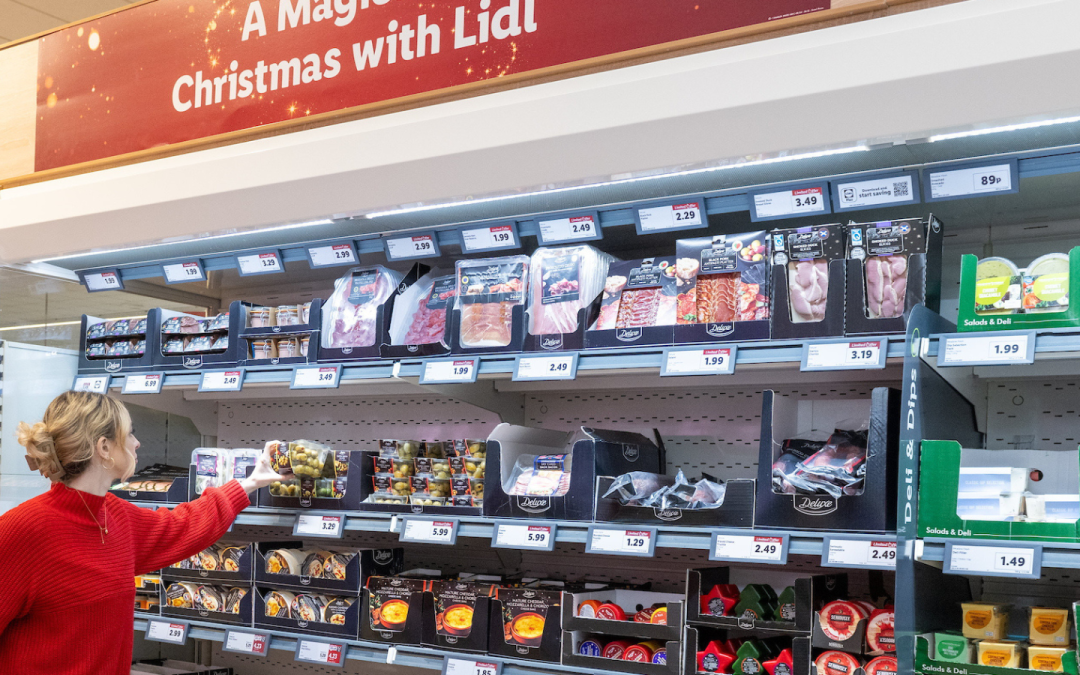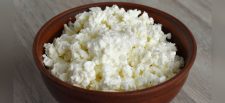According to the latest data from market research firm Kantar, household grocery spend hit a “record high” during Christmas as customers spent an average of £460.
Overall take-home sales at the grocers rose by 2.1% over the four weeks to 29th December compared with last year.
Fraser McKevitt, head of retail and consumer insight at Kantar, said: “It was a solid Christmas at the supermarkets with sales surpassing £13 billion during the four weeks of December for the first time ever, showing people were clearly in the mood to celebrate and spend. However, despite the festive cheer, grocery price inflation has ticked up to 3.7%, its highest level since March 2024.
“In contrast to reports of disappointing footfall across the rest of the high street, it was a very different story in the world of grocery. The average household made nearly 17 separate shopping trips this December, delivering the busiest month for the retailers since the pre-lockdown rush in March 2020. As anticipated, Monday 23rd December was the most popular shopping day of the year, with sales a whopping 30% higher than any other day during 2024.”
Kantar found that people were also willing to “splash out” more than usual, as sales growth for branded goods accelerated to 4.2%, while premium own-label lines jumped by 14.6%. The latter now account for a record 7% of all sales, said Kantar, as nine in 10 households bought at least one of these products in December.
McKevitt continued: “We’ve all got our own festive favourites, but it seems that age differences come into play too. Under 45s are far more likely to pick up a sausage roll, and they also go for a slightly more mediterranean spin, being the most likely to reach for panettone as well as antipasti and party food as part of their Christmas shopping. Meanwhile over 45s account for the majority of Christmas cake and fortified wine sales. The seasonal biscuit, however, knows no bounds appealing across the generations.”
He said: “More people chose to do some of their Christmas grocery shopping online this year with 5.6 million households opting for delivery or click and collect services on at least one occasion. Online spending for the month reached a record £1.6 billion. This saw Ocado boost its sales by 9.6% over the 12 weeks, taking its overall share to 1.8%.”
Lidl and Aldi achieve record Christmas shares
Discount retailers Lidl and Aldi achieved their highest ever Christmas shares at 7.3% and 10.0% respectively. Lidl secured the fastest footfall growth of any retailer as spending through its tills increased by 6.6%. Aldi’s sales were up 2.9%, as it attracted an additional 315,000 customers to its stores.
Ryan McDonnell, CEO at Lidl GB, said: “This year, we were thrilled to welcome more customers than ever before. That’s a strong reflection of the trust our customers place in us and the dedication of our colleagues and suppliers, who work so hard to deliver an outstanding Christmas for the communities we serve.
“Looking ahead, we’re excited to build on our momentum, growing our presence across the country and continuing to deliver the highest quality at the best prices on the market.”
Aldi UK’s CEO, Giles Hurley, commented: “We dropped hundreds of prices last year as part of our ongoing mission to make outstanding quality, affordable food accessible to everyone.
“Our offering of outstanding quality British products at unbeatable prices was a winning combination yet again this Christmas as customers wanted to celebrate in style after an uncertain year, but with more challenges ahead, they wanted to do it without breaking the bank.”
Britain’s largest grocer Tesco saw growth across its convenience, superstore and online channels contributing to a 5.0% increase in sales over the 12 weeks to 29th December. Its 0.8% share gain was the biggest of any supermarket, taking its hold of the market to 28.5%.
Sainsbury’s achieved its highest share since December 2019 at 16.0% thanks to sales growth which outpaced the market at 3.5%. Morrisons sales rose by 0.4% with its share standing at 8.6%. Asda now holds 12.5% of the market.
Waitrose market share remained at 4.6% with spending increasing by 2.1%. Iceland’s sales rose by 1.0%, giving the frozen food specialist a 2.3% share. Convenience retailer Co-op’s portion of the market is now 5.3%.
Outside of the grocers, food and drink spending at M&S increased by 8.7%, driven by strong performance in its core fresh and chilled range (9% higher) and ambient lines (11% greater) across the 12 weeks.









